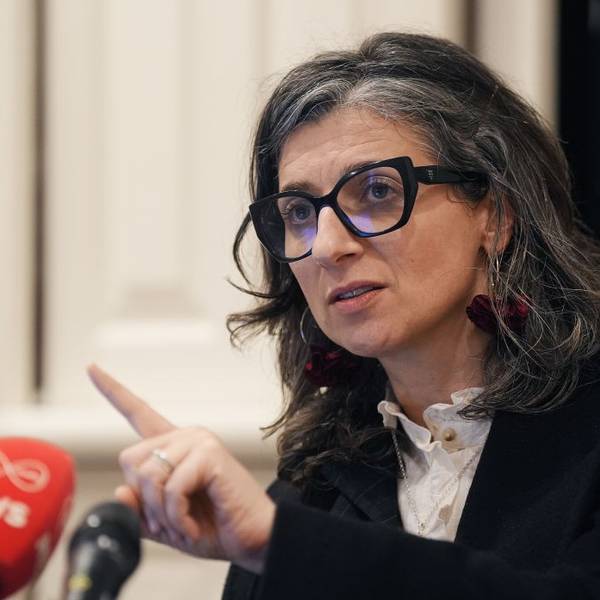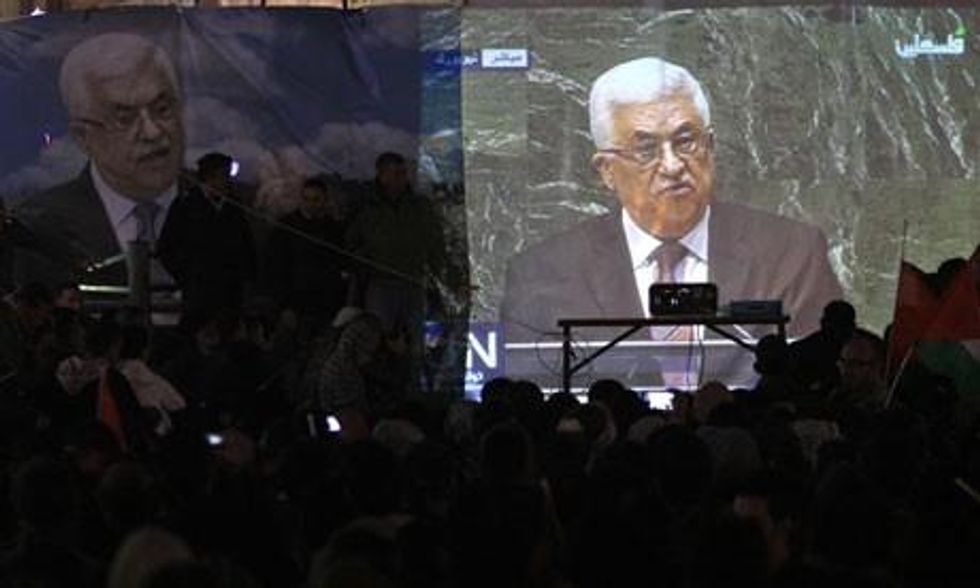On 29 November 1947, the UN general assembly voted to partition Palestine between native Palestinians and overwhelmingly European Jewish colonists. The partition plan granted the colonists (one-third of the population) 57% of the land, and granted the native inhabitants (two-thirds of the population) 43%. On 30 November, the colonists embarked on the military conquest of Palestine, expelling hundreds of thousands of Palestinians. They declared their state on 14 May 1948. Of the 37 Jewish signatories to the "Declaration of the Establishment of the State of Israel," only one was born in Palestine, the Moroccan Behor Chetrit. Palestinians rejected the plan as it dispossessed them of their lands. Arab armies intervened to stop the expulsion but failed and hundreds of thousands more Palestinians were expelled. The colonists conquered the territory assigned to them by the partition plan plus half the territory assigned to the Palestinians.
The partition plan stipulated that upwards of 47% of the Jewish state's population would be Arab while the Arab state would have less than 1% Jewish population. The Plan insisted that the two states could not expel or discriminate against their minorities. For the UN, the "Jewish state" meant a state that champions Jewish nationalism without discriminating against non-Jews, and that its definition of Jewish and Arab states did not allow ethnic cleansing, which is what the Jewish colonists embarked upon immediately. Since then, the colonists and their descendants insist that for them the "Jewish state" is able to discriminate by law and policy against non-Jews for example, through ethnic cleansing.
The UN has affirmed the right of the refugees to return to their homes and be compensated for their losses, which Israel refuses. After Israel's conquest of the remaining 22% of Palestine in 1967 and its establishment of more colonies in the conquered territories, more resolutions were passed condemning Israeli violations of international law.
In 1974, the UN recognised the Palestine Liberation Organisation as the sole legitimate representative of the Palestinians and has since continued to reiterate its commitment to resolutions passed since 1948 calling on Israel to reverse its illegal measures.
After the 1993 Oslo Accords, the PLO was marginalised, and the Palestinian Authority (PA) was recognised as representing West Bank and Gaza Palestinians (but not East-Jerusalemites although they voted in PA elections). Since 2007, the PA ceased to represent Gaza Palestinians, now represented by Hamas. The new PA project became establishing a mini-state on truncated territory in the West Bank without sovereignty. This project ran into trouble because of Israel's ongoing colonisation of the West Bank (and East Jerusalem). Negotiations ceased, leaving the PA without legitimacy or an end goal to its existence.
Yesterday, the general assembly voted to admit Palestine as a state with observer status. Despite assurances to the contrary, the new state is likely to undermine the status of the PLO at the UN. Whereas the PLO represented all Palestinians, the PA only represents West Bankers. This recognition has diminished the Palestinian state geographically from 43% of historic Palestine granted by the partition plan to less than 18% of it (possibly 10%, if we factor annexations, settlements, military areas, etc), and has reduced Palestinians from 12 million people to 2.4 million West Bankers, 40% of whom are refugees.
The vote is essentially an update of the partition plan of 1947, whereby the UN now grants Jewish colonists and their descendants 80-90% of Palestine, leaving the rest to the native inhabitants, and it risks abrogating the refugees' right of return.
A small minority native to the West Bank (about 1.3 million people), for whom the PA claims to speak, will gain UN status as a state under occupation, while the Palestinian refugees in the West Bank (1 million people), along with six million other refugees, risk losing their right of return.
By recognising a diminished Palestinian state, the vote effectively abandons the UN understanding of the "Jewish state" as one that has no right to discriminate against or ethnically cleanse non-Jews. The new arrangement confers the blessing of this international forum on the Israeli understanding of what a "Jewish state" entails- namely, the actually existing legal discrimination and ethnic cleansing practised by Israel -as acceptable. That this occurred on 29 November, the date of the partition plan, reiterates this date as one of continuing defeats for the Palestinians who continue to suffer from Israel's colonial laws, and repeats UN guilt in denying Palestinians their rights not to suffer dispossession and racism. The Palestinians, however, whose majority is not represented by the PA, will no more heed this new partition plan than they did the last one and will continue to resist Israeli colonialism until it comes to an end and until Israel becomes a state for all its citizens with equal rights to all regardless of national, religious, or ethnic background.




